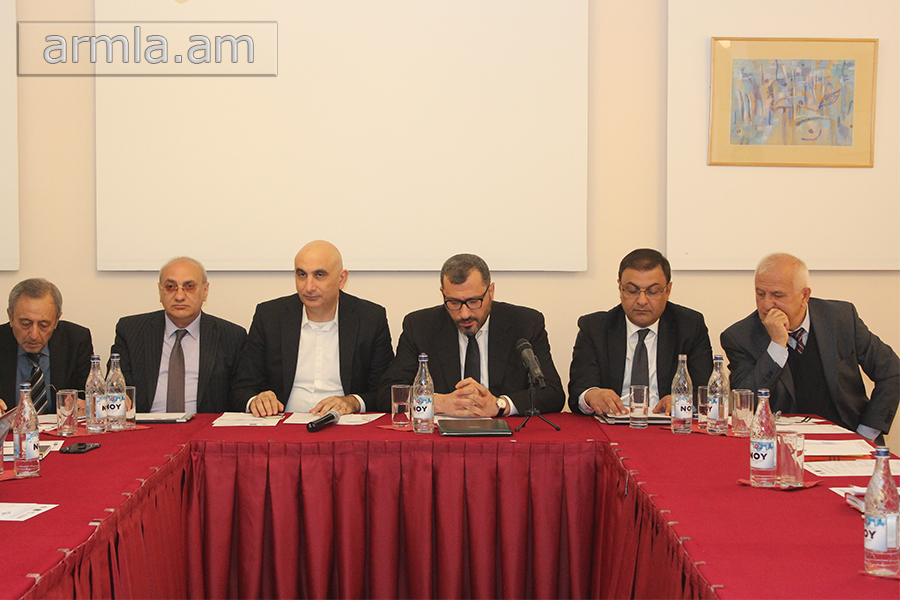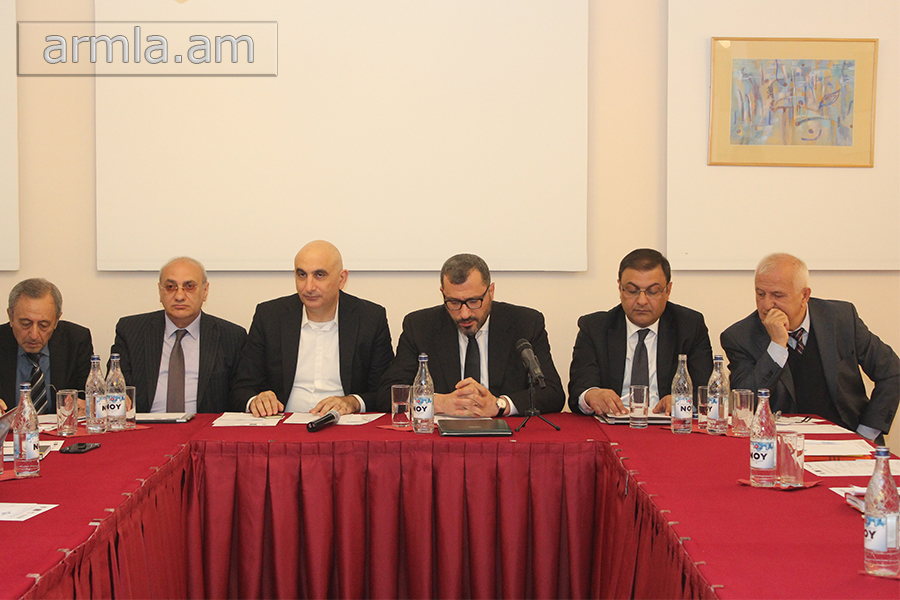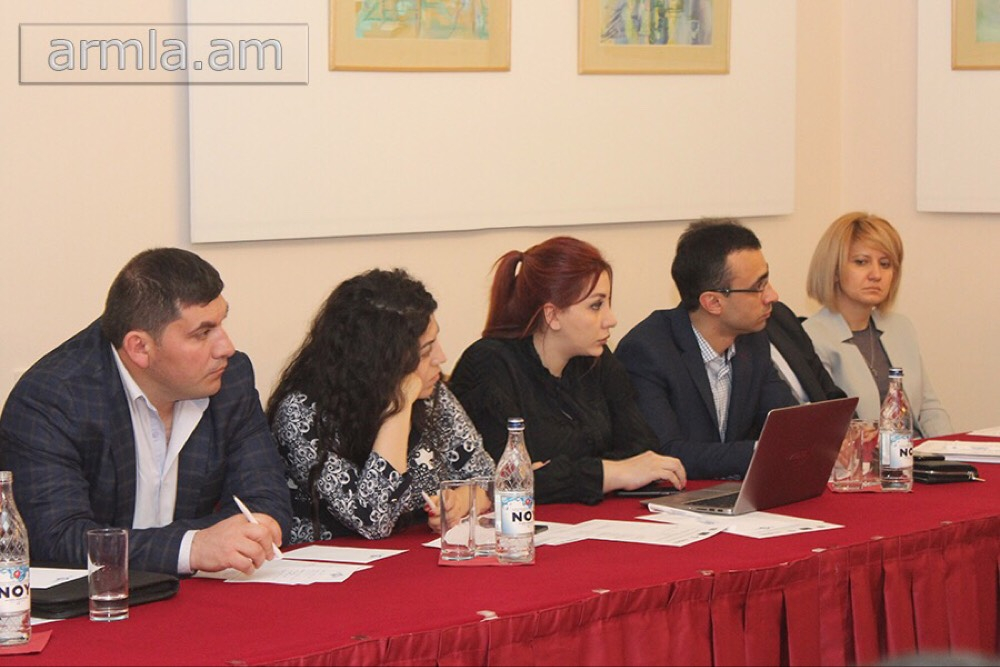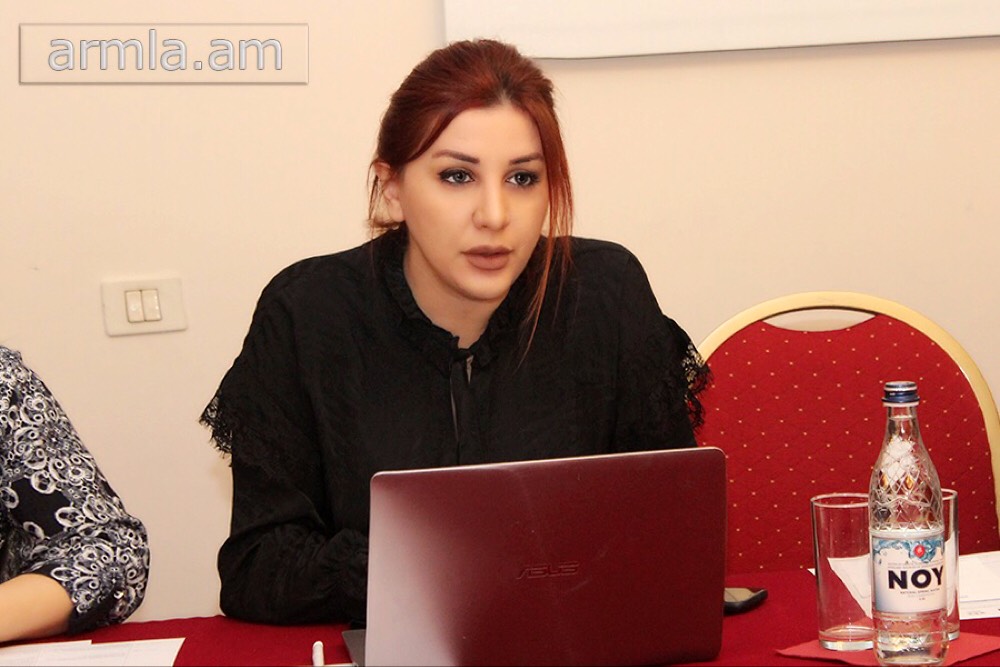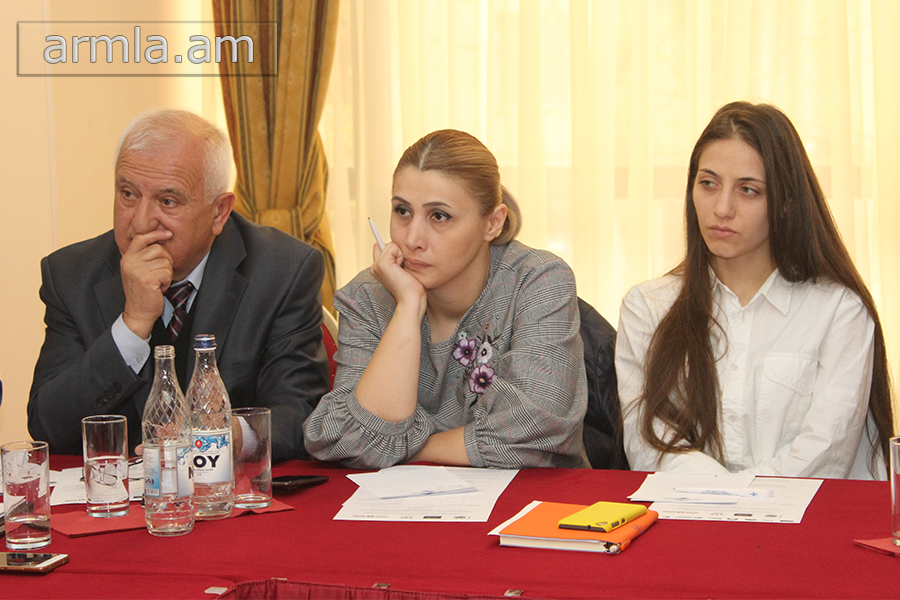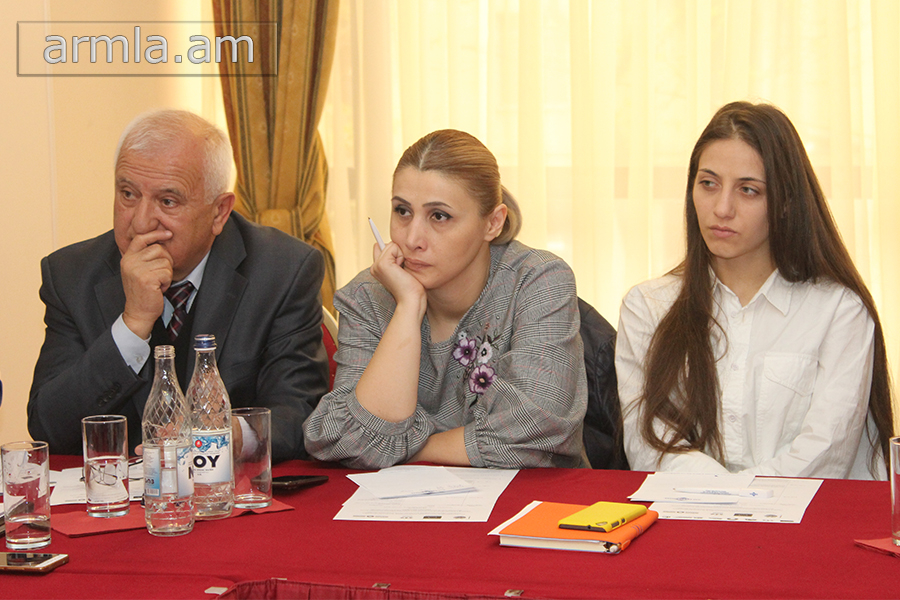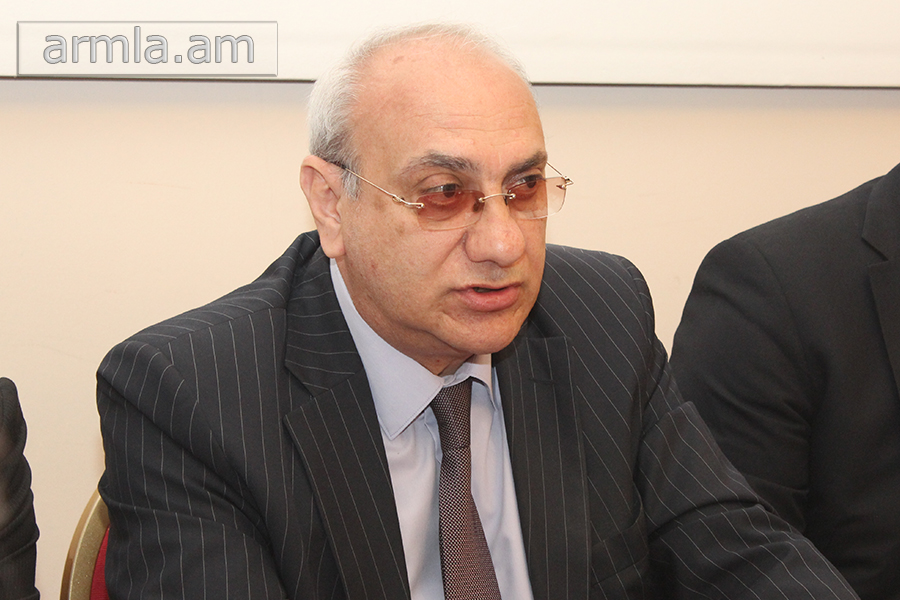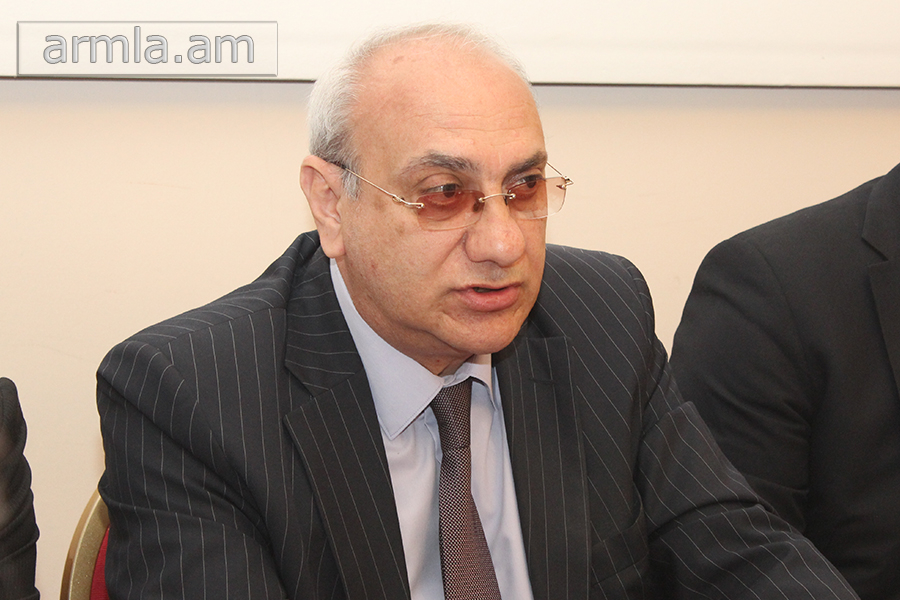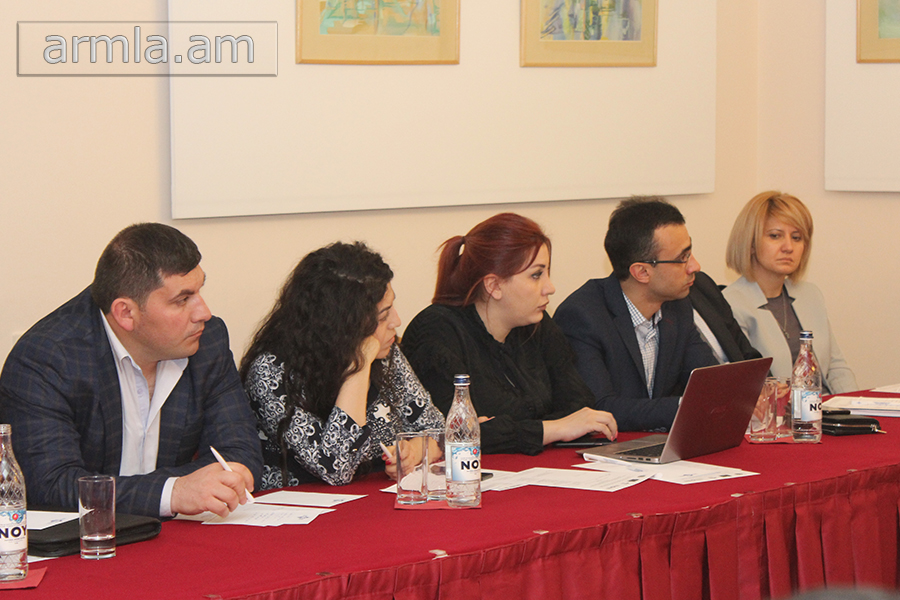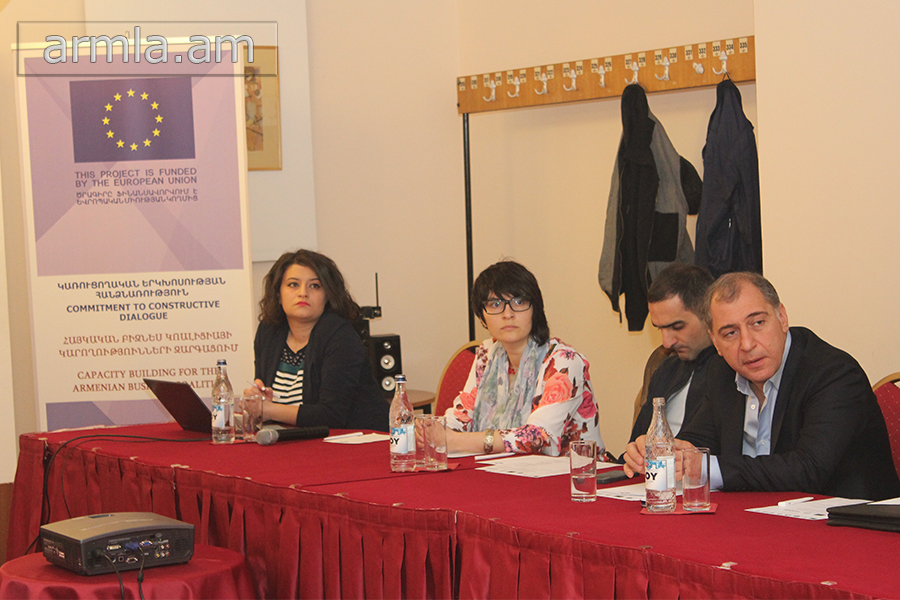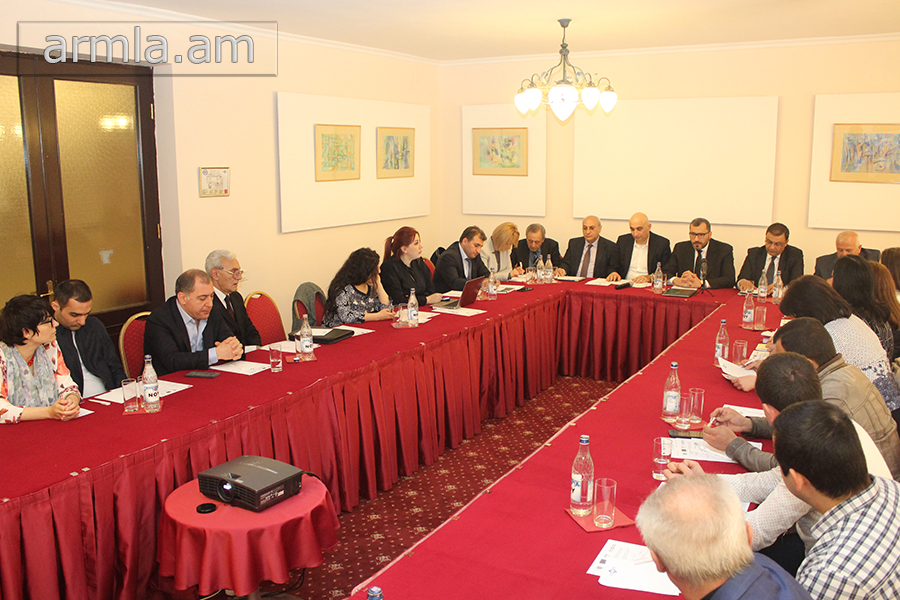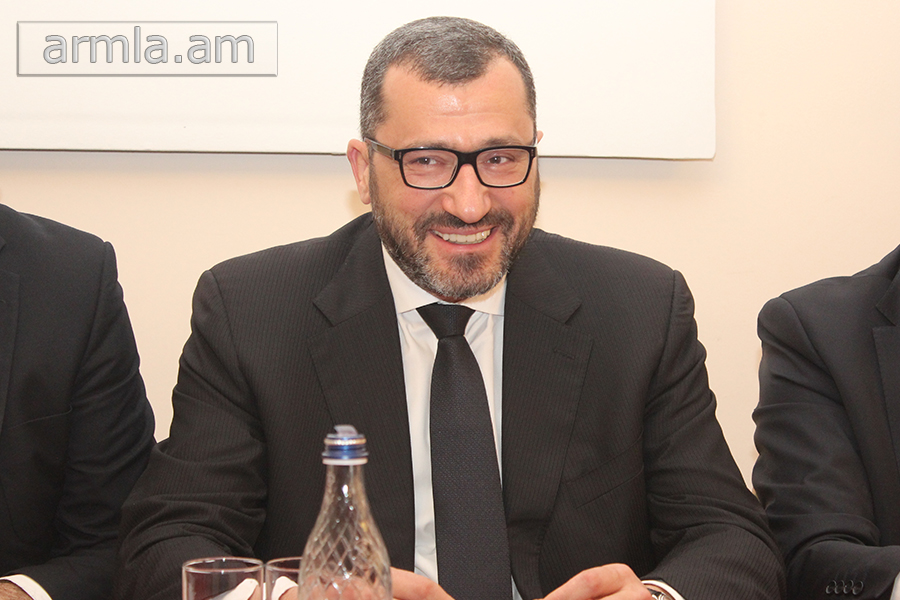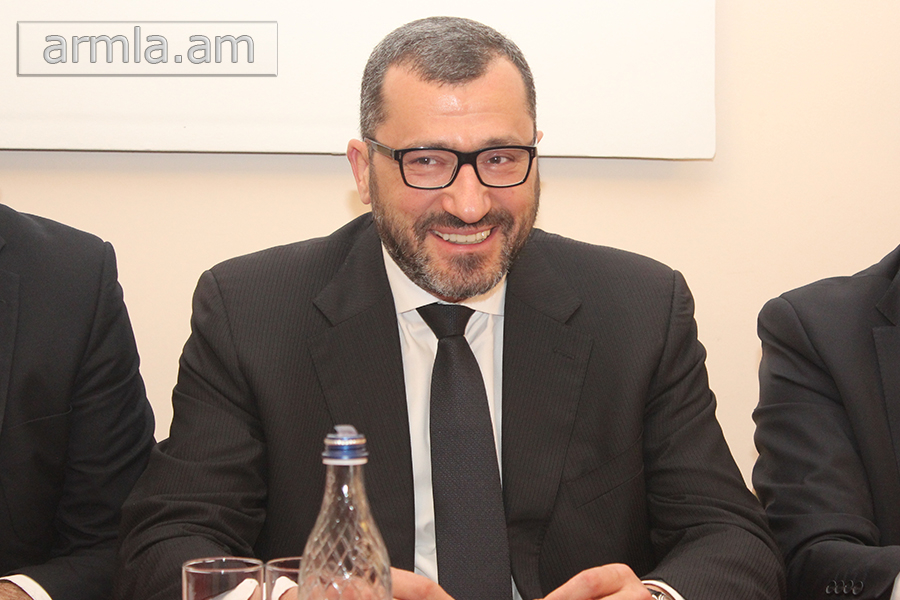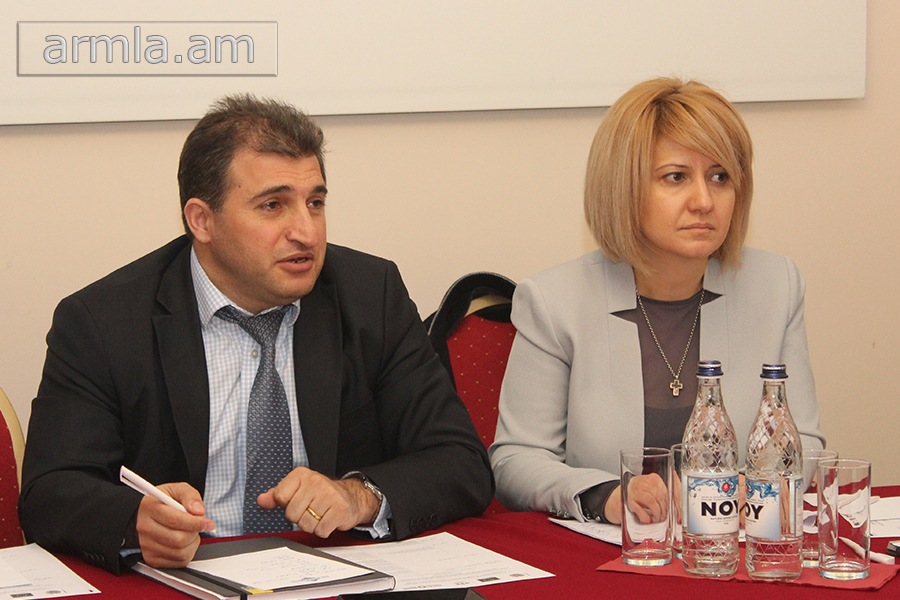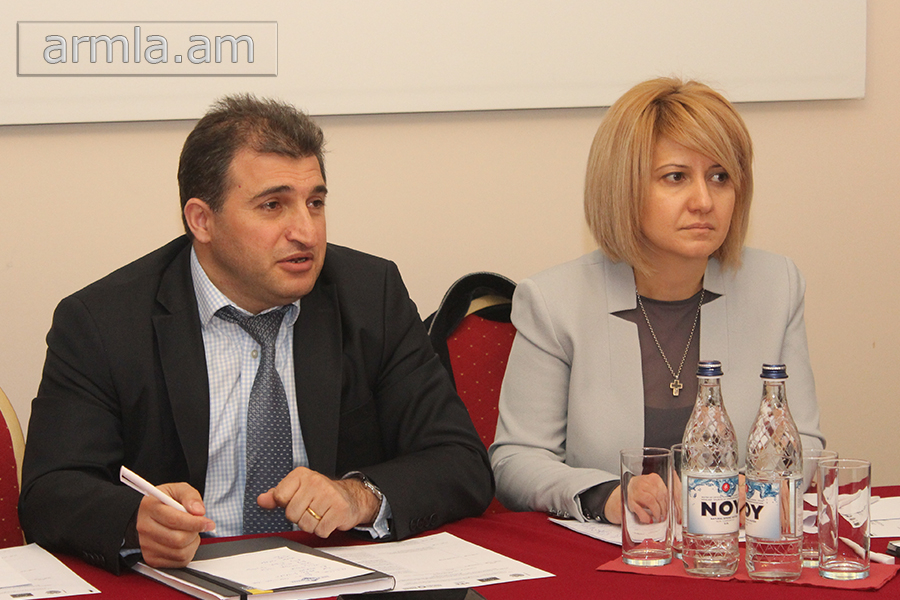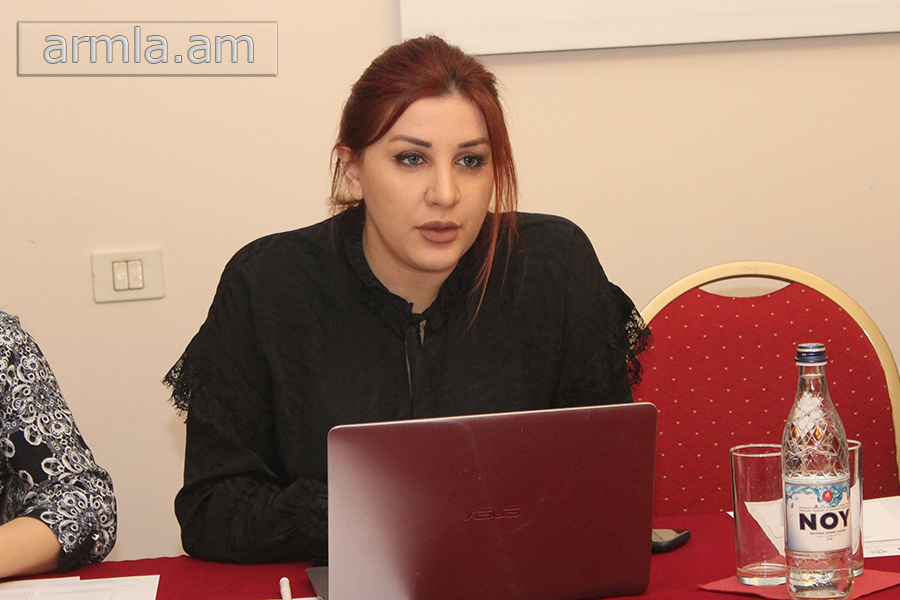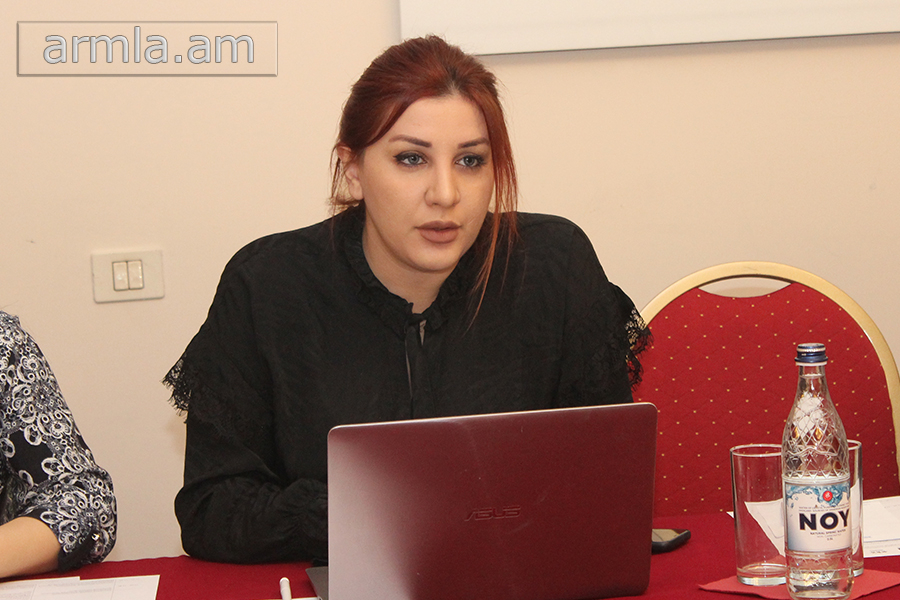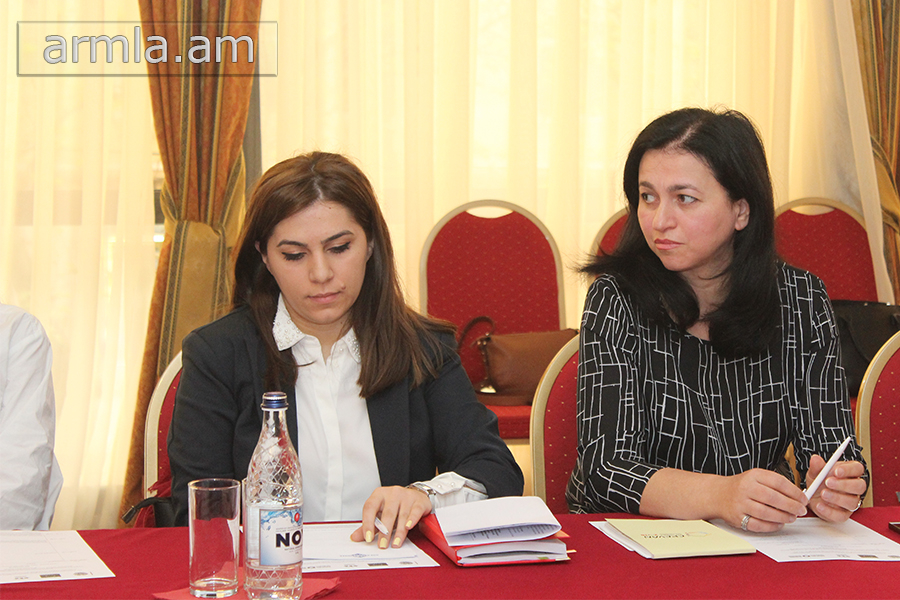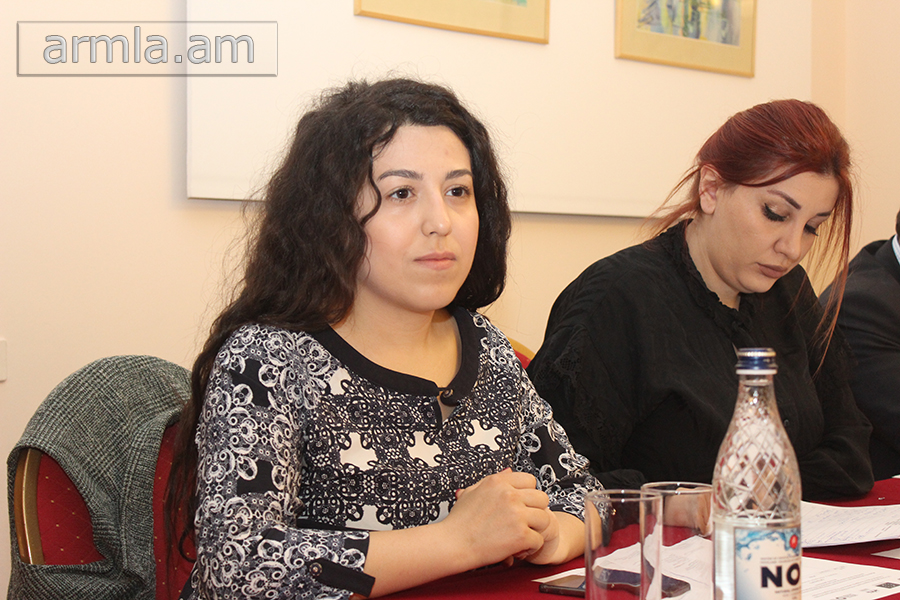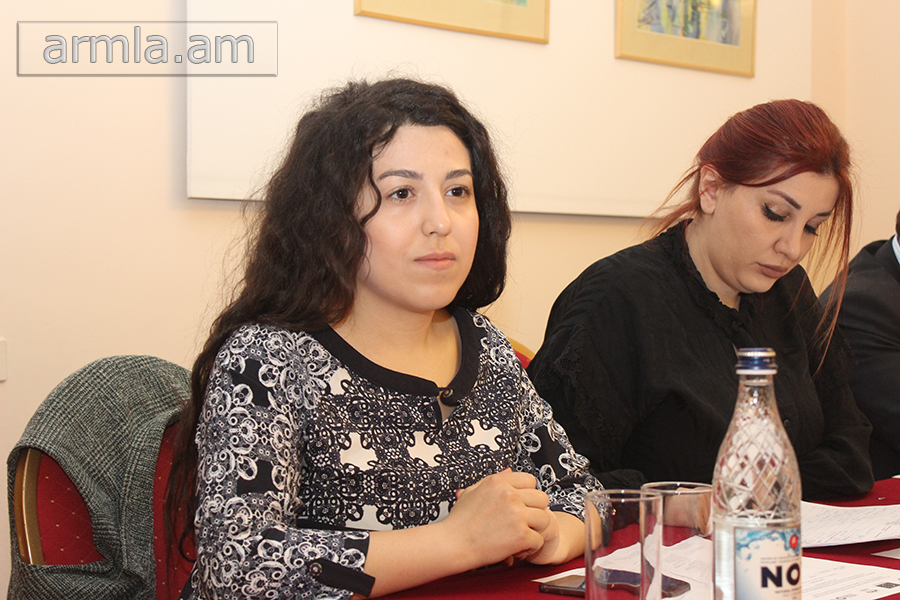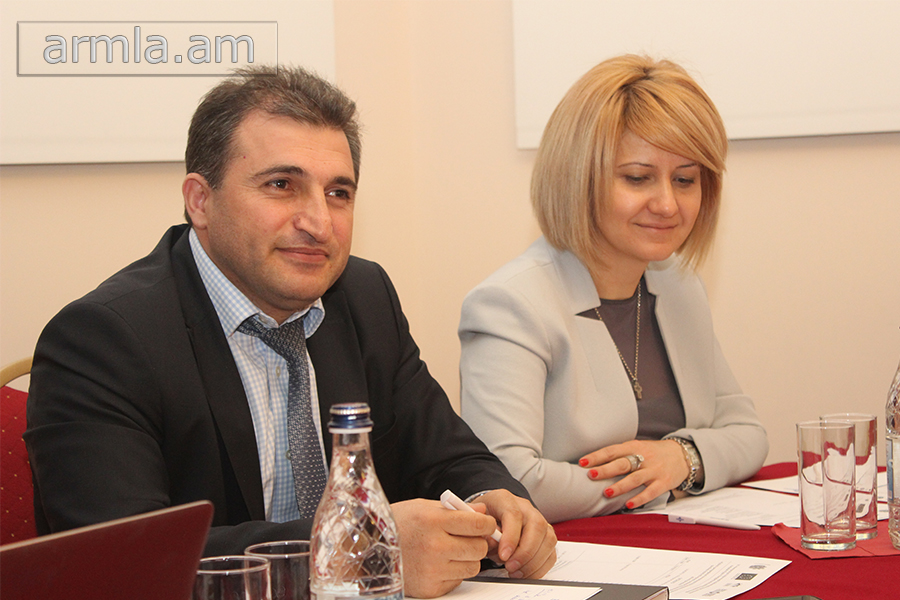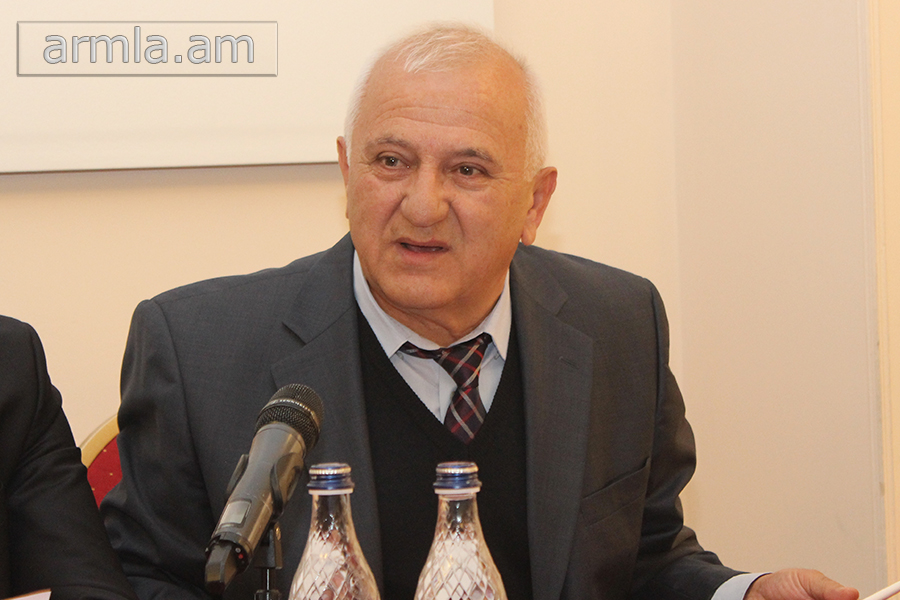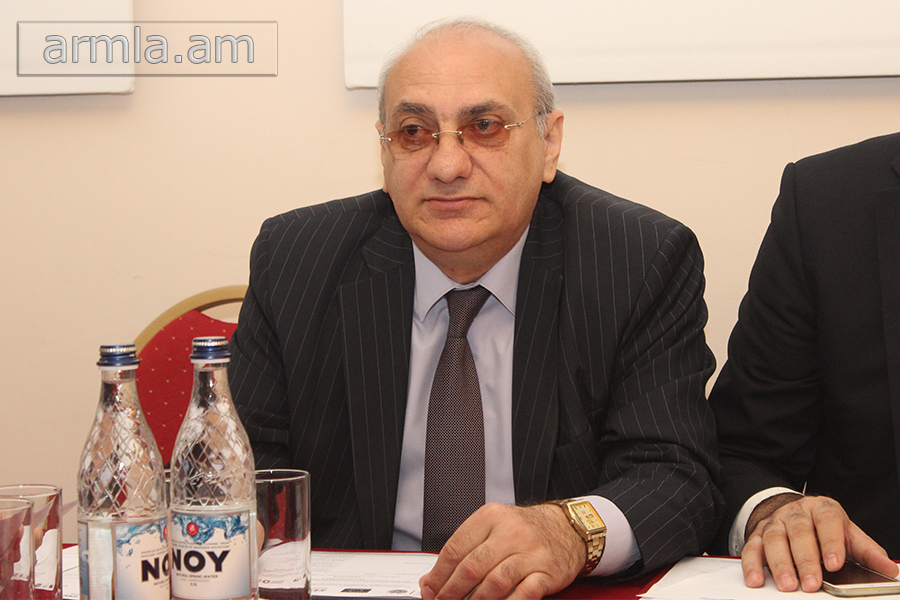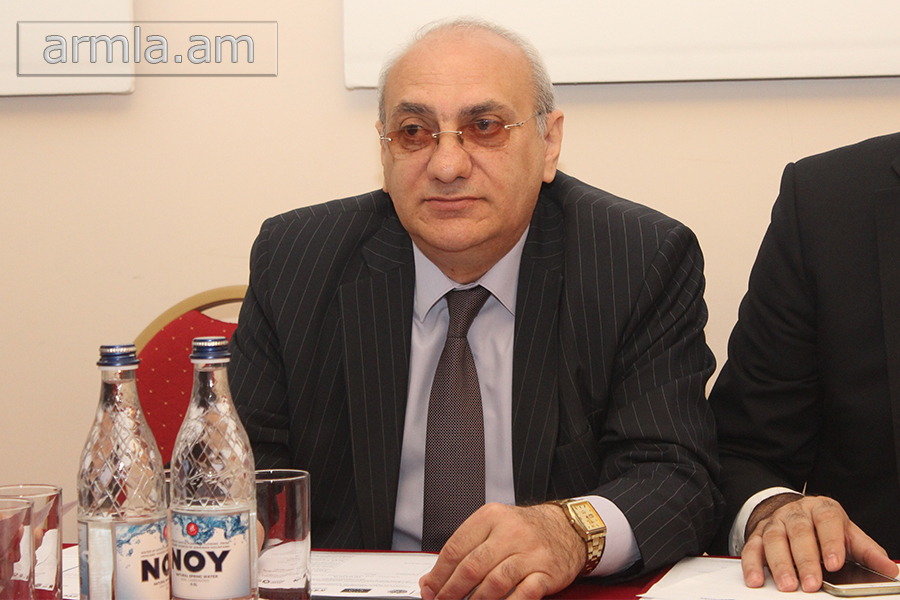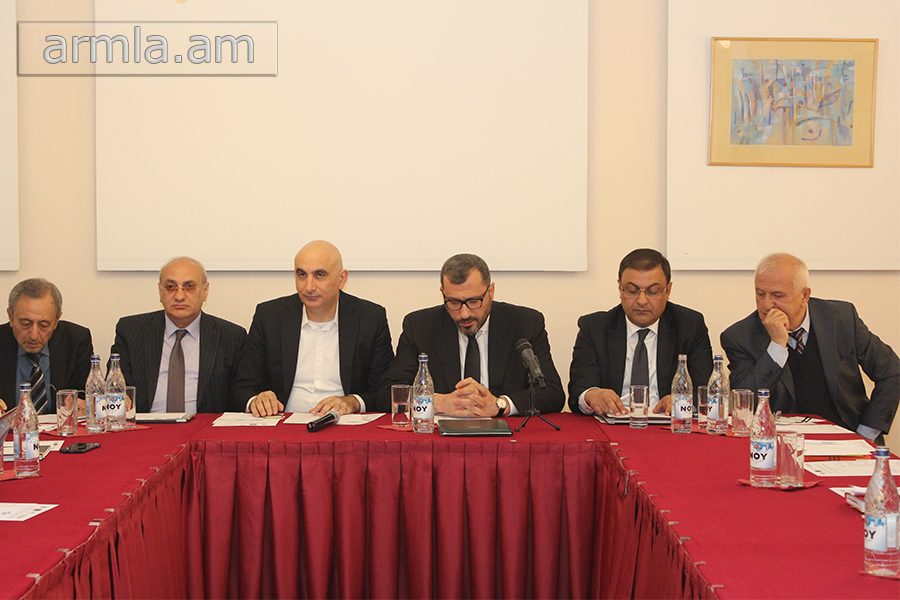
Discussion on “Business and Civil Society Participation in Implementing Procurement Legislation Reforms” was held on 16 April within the framework of the “Armenian Business Coalition Capacity Building Program” implemented in the scope of the EU-funded “Commitment to Constructive Dialogue” Project.
Mr. Gagik Vardanyan, Director of Civic Development and Partnership Foundation (CDPF) noted in his welcoming speech that the goal of the meeting is to draft a legislative amendment to the recently-actively debated procurement legislation.
Mr. Karen Brutyan First Deputy Minister of Finance that meetings aimed at legislative reforms with public and business representatives are held, and as a result of which it is expected to identify and raise all the issues.
“The content of procurement should be such that the departments still present their needs to the public at the stage of budget discussions, justifying their objective. The procurement process is one of the most risky areas, so the most important thing here is to ensure publicity and accountability, which should be carried out with the direct involvement of the civil society,” Mr. Brutyan said.
He once again reaffirmed his readiness of the Ministry of Finance to cooperate at any time.
According to Mr. Karen Zadoyan, CCD Project Manager, President of the Armenian Lawyers’ Association, business and civil society organisations react in cases when laws and projects are adopted and rules of the game are defined.
“Nowadays, it is a unique opportunity to take part in identification of these problems. It is necessary to make a serious diagnosis so that the treatment will be properly organized,” he said.
Mr. Sergey Shahnazaryan, Head of the Public Procurement Policy Department of the Ministry of Finance Sergey Shahnazaryan presented the main provisions of the draft amendments to the procurement legislation.
ALA representative Lusine Nalbandyan has mentioned, that the corruption risks in the sphere of public procurement are many, but the most most common one is the vicious practice of developing concrete technical standards for a specific company. Lusine then presented a series of whistles on the mentioned abuses, received through the Bizprotect website, operated by the Armenian Association of Lawyers. ALA representative, procurement specialist Mariam Zadoyan has added, that a number of regulations in the procurement sector are not kept in practice, which is mainly conditioned by the lack of sectoral knowledge of those involved in the procurement process within the state contractors. It was also suggested to introduce a rating and monitoring system for procurement participants, which will form part of the final evaluation of applications. In the system, it is proposed to consider as significant factors having a corporate governance system, publishing annual corporate governance reports and foreseeing anti-corruption compliance programs.
At the end of the discussion, the specialists responded to NGO representatives questions and agreed that NGO representatives would submit their proposals on legislative amendments to the Ministry of Finance.
The “Commitment to Constructive Dialogue” project is implemented with the financial support of the European Union by a Consortium of civil society organisations, which are the Armenian Lawyers’ Association (lead organisation), Agora Central Europe (NGO based in the Czech Republic), the Armenian Centre for Democratic Education-CIVITAS, the International Centre for Human Development, the SME Cooperation Association and the Union of Communities of Armenia.
The project aims to enhance the influence of civil society organisations (CSOs) and CSO coalitions/networks on public policies in Armenia. This will allow organisations that are already working in sectoral coalitions to access additional resources, new groups of civil society experts to come together and encourage place their causes on the local and national policy agenda, to identify common concerns and priorities and approach government bodies with constructive and strategic policy engagement initiatives.
The project has provided sub-grants to CSOs and CSO coalitions that will be directed to the development of public policies and will have tangible results in the 9 target sectors selected within the project, which are: Justice, Human Rights, Public Finance Management, Business, Education, Social Sector (social inclusion of children with disabilities), Agriculture, Economy and Energy.

